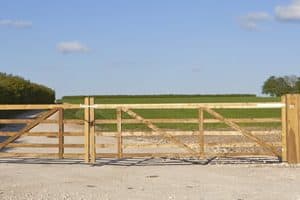1. Local Lawyer
Every buyer should talk with and retain a local lawyer before buying country property. This individual can provide invaluable knowledge and advice. An out-of-town buyer may want to have his local lawyer negotiate with the local seller. Talk with your lawyer about possible legal issues that might arise with particular properties.
2. CPA (Certified Public Accountant)
A CPA can help you figure out the seller’s numbers—his basis, equity, remaining debt, appreciation and after-tax income from your offer. He can help you determine what the property is worth and whether it’s priced fairly in terms of itself and the current market. He can help you set up your purchase in the most tax-advantaged way. If you’re buying a working farm, he can help you analyze the seller’s financial information.
3. Surveyor
It’s unlikely that you will need to survey the seller’s property before making an offer. But it may be advisable to have a surveyor walk the boundary lines with the seller’s deed in hand to make sure the lines on the ground match up with the language in the deed. A buyer should have his surveyor draw the deed’s boundary calls on a topographical map. This will determine both acreage and boundary closure.
4. Consulting Forester
If your seller’s property contains more than five acres of woods, it’s worth asking a consulting forester to do a walk-through to determine its commercial value, if any. The consulting forester will determine the merchantable value of the seller’s timber, i.e., the likely current sales price in light of volumes, species and quality. You can use this number—or not, depending on what it is—in your negotiations with the seller. You can also use it to establish your basis in the timber for tax purposes.
5. Local Advisor
It’s always useful to know someone who is both locally knowledgeable and in your corner. Your local lawyer may be this person; the seller’s real-estate broker is not.
6. Property-Specific Consultants
In addition, you may find yourself in need of advice from a soils engineer (if you have to find a septic-system site), physical engineer (if you have to build a bridge or construct a septic system), home inspector, architect, appraiser, environmental consultant (if you’re faced with a problem or liability), excavator, contractor, carpenter, farm consultant (to help evaluate a farming operation), farmer (if you have to evaluate farm buildings, systems and equipment), soils consultant (particularly if you’re going organic), neighbors (who can tell you a lot about your seller’s property and any claims or grievances they have) and environmental specialists (if you’re dealing with asbestos, mold, radon, water pollutants and the like).
This content may not be used or reproduced in any manner whatsoever, in part or in whole, without written permission of LANDTHINK. Use of this content without permission is a violation of federal copyright law. The articles, posts, comments, opinions and information provided by LANDTHINK are for informational and research purposes only and DOES NOT substitute or coincide with the advice of an attorney, accountant, real estate broker or any other licensed real estate professional. LANDTHINK strongly advises visitors and readers to seek their own professional guidance and advice related to buying, investing in or selling real estate.









PL do NOT use Abbrivations Not all understand so Define them if u use.